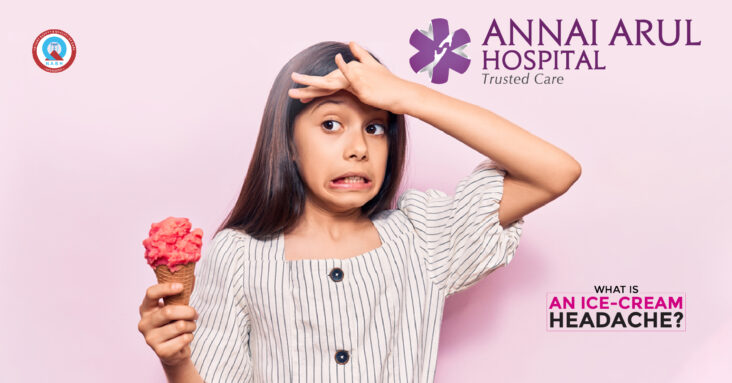Many of us like to have cold things to eat and drink, especially during hot summer days. Yet very often after consuming these cold things, you get a toothache, cold or sometimes a sharp headache. The brief, stabbing headaches that happen when you eat, drink or inhale something cold is called Ice-cream headache.
Ice-cream headache is also known as cold stimulus headaches. These headaches also occur when you expose your head to cold temperatures, such as diving into a pool of ice-cold water.
The most heartening part is that most of these ice-cream headaches last only for a short period of time.
Symptoms of an ice-cream headache
It is easy to know when you get an attack of an ice-cream headache. The symptoms include sharp, stabbing pain in the forehead. The pain peaks in about 20 to 60 seconds after it begins and then slowly goes away within the same time. Overall the pain does not last more than five minutes.
What causes Ice-cream headache?
When a person Exposes to extreme cold or has something cold to eat or drink suddenly, the person may get a headache. When the cold air or cold substances moves across the roof of the mouth and the back of the throat, it triggers the headache. Though the exact mechanism that causes the pain is not known.
There is a theory regarding ice-cream headache going around, which terms that the sudden cold sensation alters the blood flow in the nervous system, which causes a brief headache. This may be due to the body’s mechanism to prevent loss of heat from the body by constriction of the blood vessels and then relaxing again to let Blood flow again. That is why the pain goes away once the body adapts to the temperature change.
Blood vessels constrict to prevent the loss of body heat and then relax again to let blood flow rise, resulting in a burst of pain that goes away once the body adapts to the temperature change.
What are the risk factors?
Ice-cream headaches can affect anybody, regardless of age or gender. It affects those who are prone to consume colder things and those who live or travel in colder climates.
How to prevent ice-cream headache?
We all know that extreme cold triggers the condition, so if you avoid having cold food and drinks as well as cold weather or keep away cold by wearing necessary warm clothing, you can prevent ice-cream headaches.


